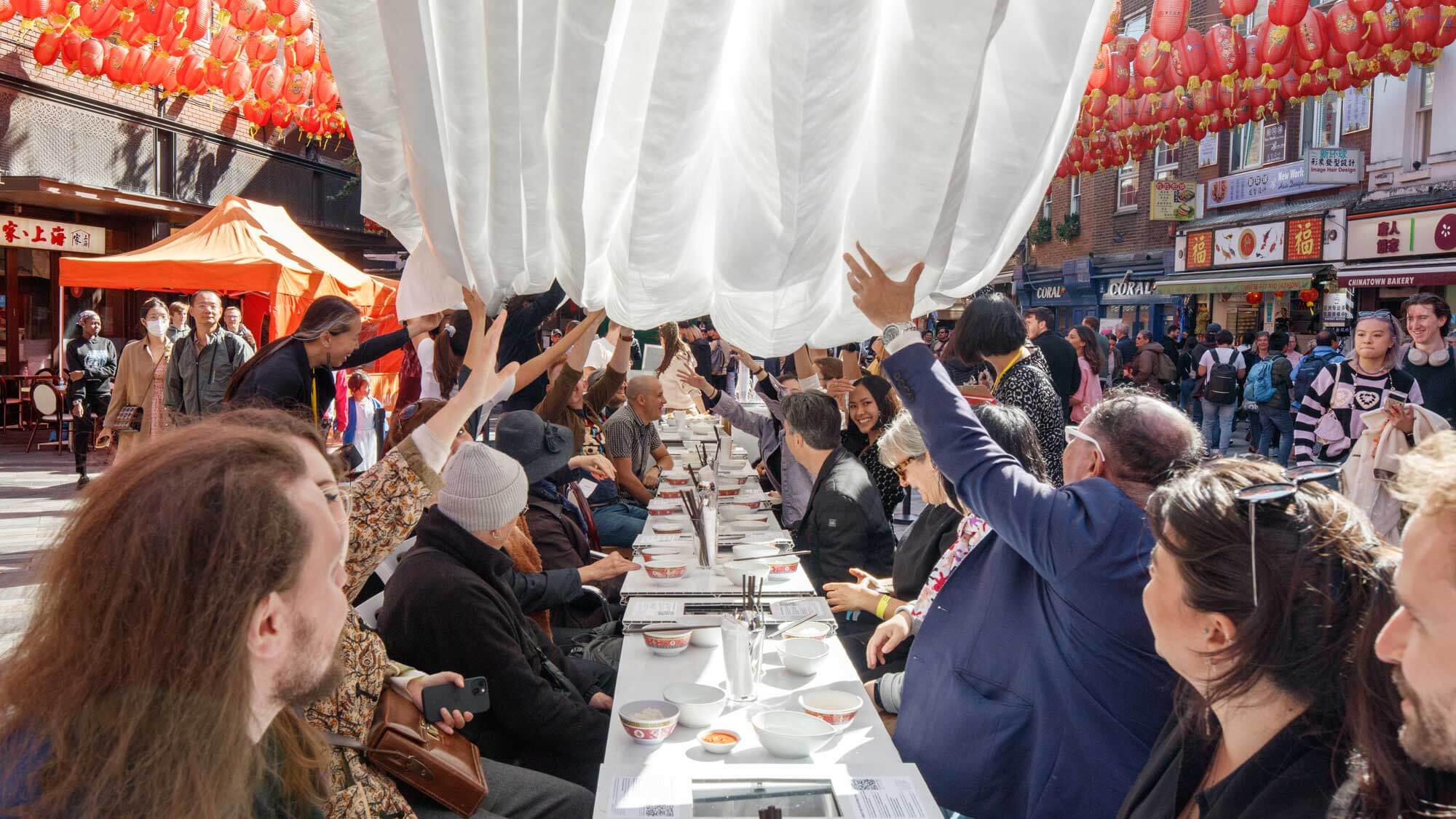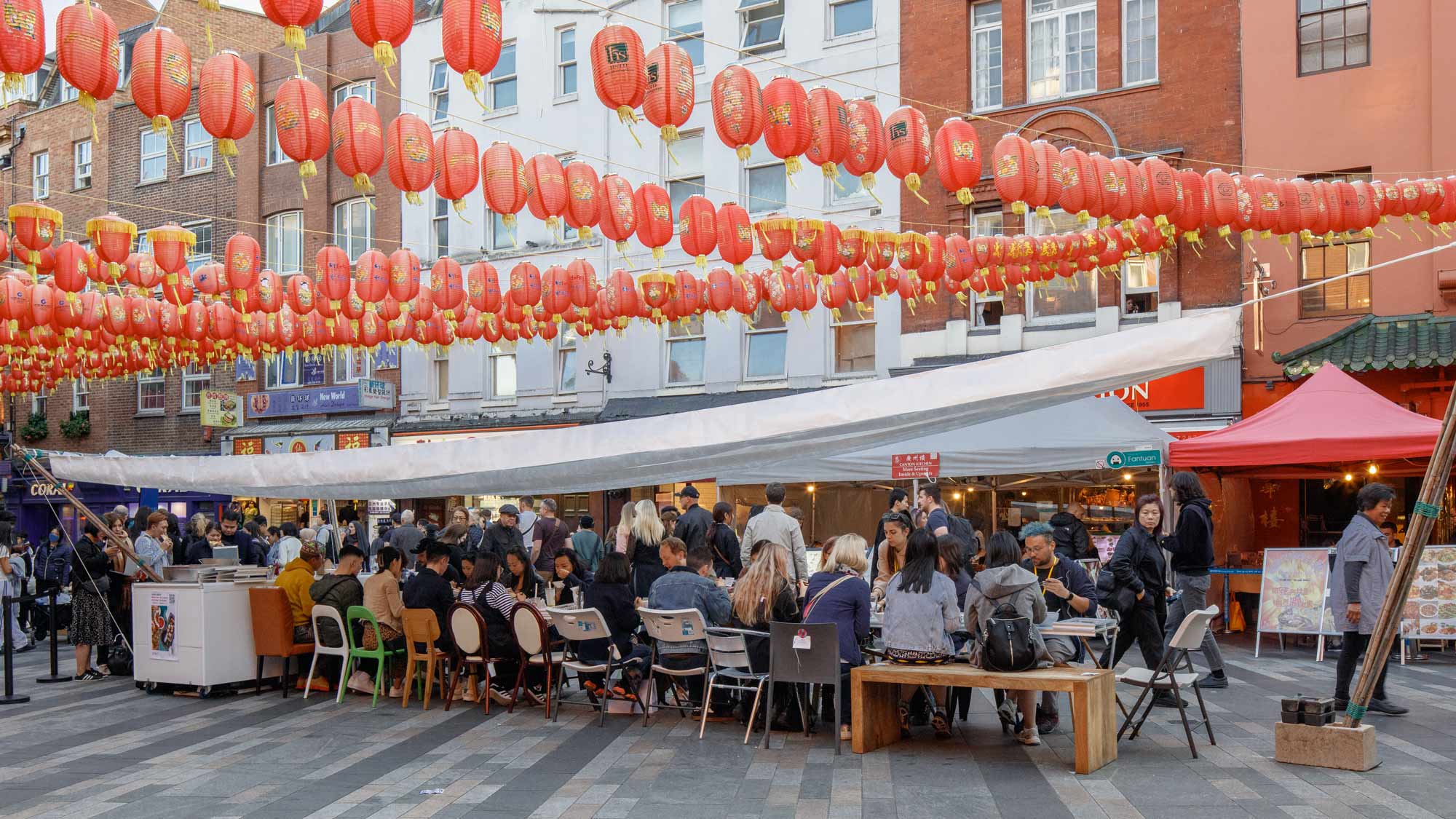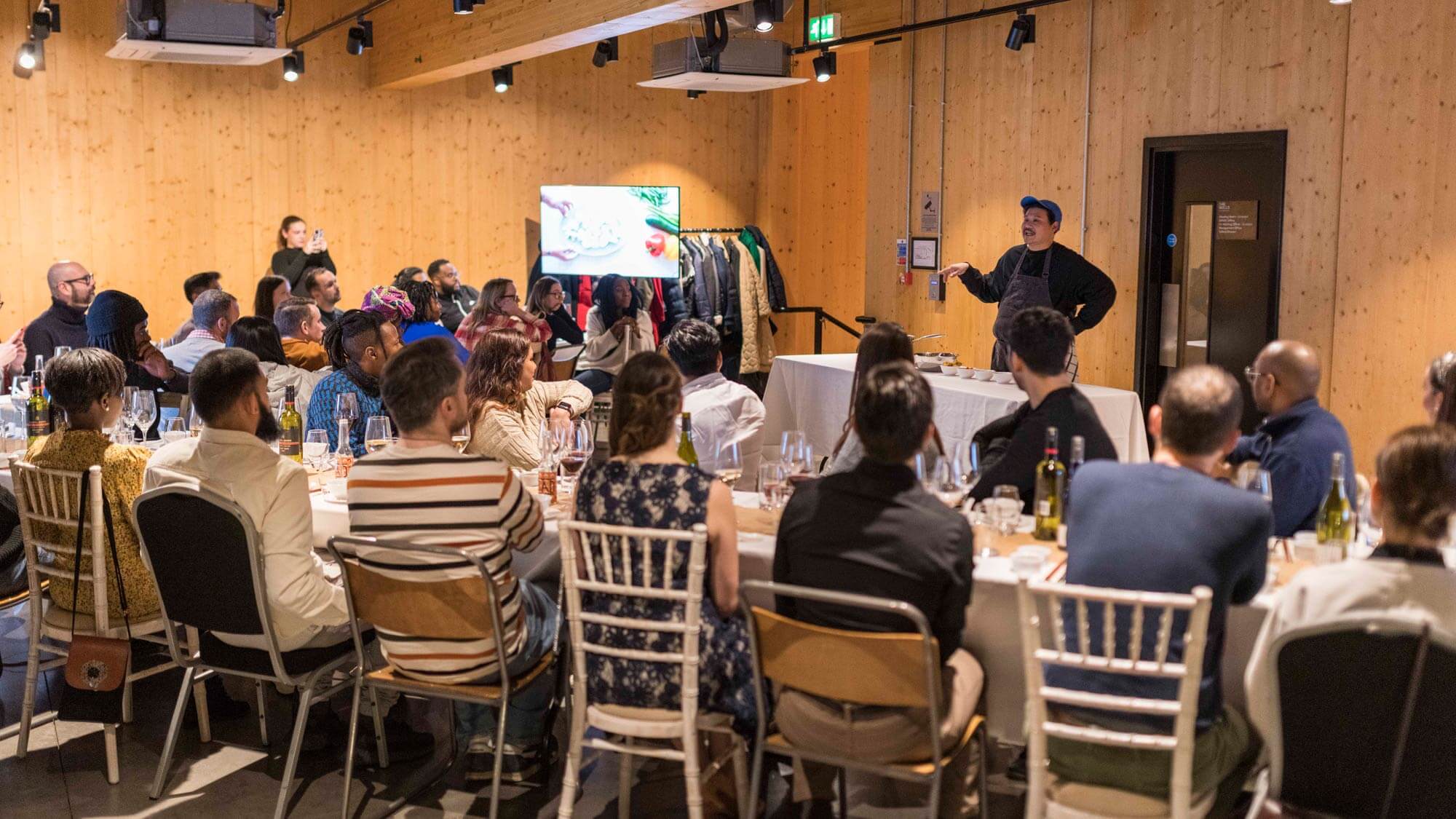Nomination
lowcarbon.lingql.com/chinatown
lowcarbon.lingql.com/digitalcookbook
Low Carbon Chinatown (LCC) is an interactive urban intervention, participatory platform, and meal-as-performance, founded on AI and data science, addressing the Climate Crisis through the lens of global agri-food systems. Using Asian Chinese diasporic food culture as a starting point, it engages large groups of cross-generational diasporic East and Southeast Asians (ESEA) in the UK and Europe to reduce carbon footprints of food production, sourcing and consumption.
Contributions from food writers, data scientists, architects and engineers enrich LCC: engagement workshops develop low carbon recipes preserving authenticity, media-savvy recipe videos integrate climate info and interviews, an online AI-enabled platform facilitates co-creation of low carbon recipes, and public meal-as-performance events showcase the dishes to wider audience.
Food and eating, with its cultural associations, is something we all have in common, breaking down barriers and bringing us together. LCC brings an inclusive perspective to Europe’s climate movement, engaging people to explore aspects of the unseen food system in Europe, shattering myths of ESEA communities lacking environmental concern.
Credits
Low Carbon Chinatown is a project by Ling Tan, originally commissioned by Kakilang.
With contributions from Raphael Leung, MiMi Aye, Uyen Luu, Shu Han Lee, Usman Haque, Nick Murray, Gary Campbell, and Atelier One
With support from: Arts Council England, Compass Festival, Manchester Museum, Barking Riverside, London Chinese Community Centre, Hackney Chinese Community Centre, Newham Chinese Association, Royal Docks
Biography
Ling Tan (SG/UK) trained as an architect and is a designer, artist, and coder known for her work on social engagement, urban data science, and environmental politics. Her work challenges the ways people interact with their built environments, using technology as a catalyst for dialogue and action. With a focus on citizen participation and collective agency, she has worked with diverse communities worldwide on a range of participatory and technological initiatives to address pressing urban and environmental issues, including climate change, public safety, air quality, and gender and racial equity.






